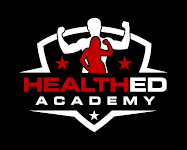Testosterone levels naturally decline as we get older. Things like an unhealthy diet, a lack of exercise, and poor sleep significantly speed up this process. Luckily, boosting your intake of essential nutrients can reverse testosterone decline. In this detailed guide, you'll learn more about the eight top vitamins and minerals to boost testosterone levels.
Many men suffer from declining testosterone after turning 40 or even 30. This comes with a full array of unpleasant symptoms, including weight gain, low mood, muscle loss and weakness, and constant fatigue. Fortunately, testosterone replacement therapy isn't your only option to get your youth back.
Just like any process in the human body, optimal testosterone production needs a sufficient supply of many essential nutrients from both diet and supplements.
Natural testosterone boosters contain ingredients that help in naturally increasing testosterone production.
Below, we list the most useful vitamins and minerals that can address decreased testosterone levels.
The Top Vitamins and Minerals That Help Produce Testosterone
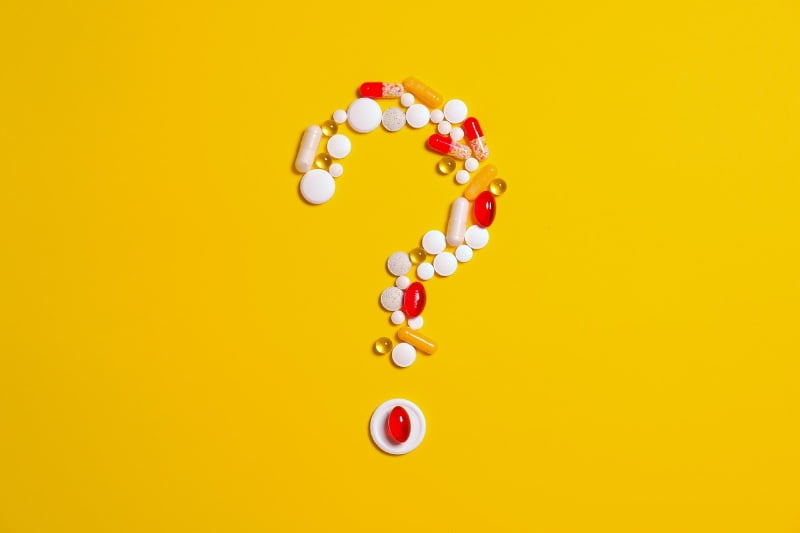
When building your dietary and supplement plan, pay attention to the following vitamins and minerals:
Vitamin A - Good for Maintaining a Healthy Hormonal Balance
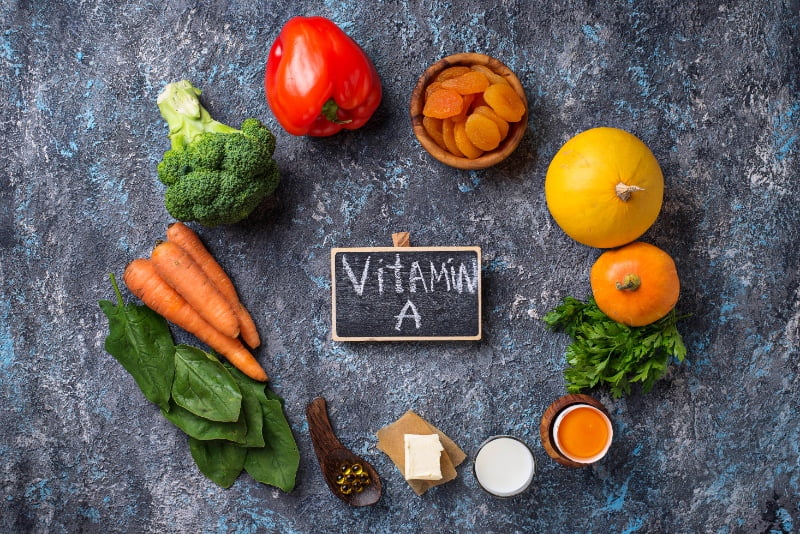

Vitamin A is known for being good for eye and immune system health.
Admittedly, it's very unlikely you'll see vitamin A in a testosterone supplement. But it actually helps cells that produce testosterone grow.(1)
One way to boost testosterone levels naturally is to have balanced estrogen levels. Vitamin A does this by converting active estrogen into inactive estrone.
Unfortunately, more research is still needed to find out if taking vitamin A supplements is effective for increasing testosterone levels.
Pros
- Improves fertility
- Supports your immune system and a healthy estrogen metabolism.
Cons
- It's not clear if vitamin A supplementation can increase testosterone levels.
- It can be toxic to the liver in high doses.
Vitamin D - Good for Increasing Bone and Muscle Strength
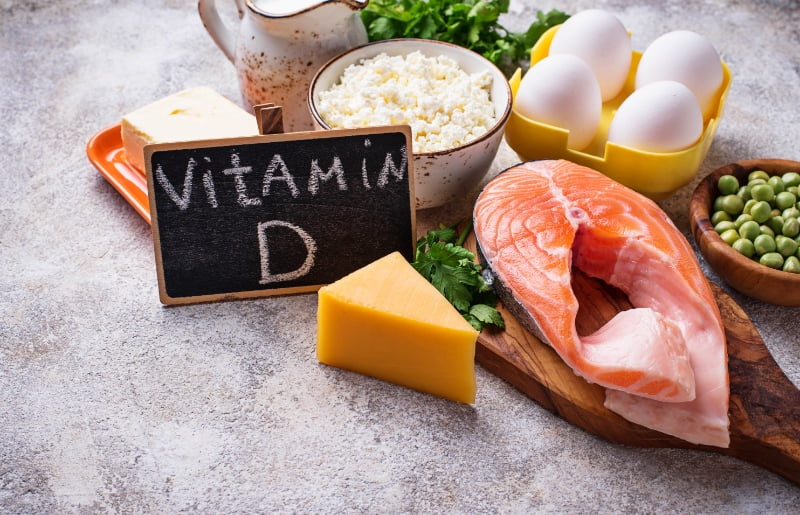

Vitamin D, particularly vitamin D3, is one of the most common ingredients in testosterone supplements because this vitamin is actually a steroid hormone that improves immune function, muscle growth and strength, and supports testosterone production.
Vitamin D3 can increase a man's testosterone levels by 20%, but the effect seems to be more pronounced in those who have a vitamin D deficiency.(2)
Additionally, vitamin D3 can help deal with erectile dysfunction.(3)
Since it's known as the "sunshine vitamin," many people are deficient due to their current indoor lifestyle. Due to this, most people can benefit from an additional vitamin D boost.
Pros
- Supports numerous body functions
- Can increase testosterone production
- Improves sexual function
- Boost immunity
Cons
- It might only work if you are deficient in vitamin D.
B Vitamins - Good for Regulating Estrogen levels, Boosting Energy and Mood, and Increasing Muscle Strength


Many B vitamins directly or indirectly support testosterone levels. Some examples include:
- Vitamin B2 (Riboflavin)
- Vitamin B3 (Niacin)
- Vitamin B5 (Pantothenic acid)
- Vitamin B6 (Pyridoxine)
- Vitamin B9 (Folic acid)
Here is a quick rundown of what each vitamin does.
- Riboflavin inhibits the enzyme 5-alpha reductase, slowing down the conversion of testosterone to dihydrotestosterone. This causes an increase in testosterone levels.(4)
- Niacin can improve erectile function in men suffering from erectile dysfunction.(5) Animal studies also showed that niacin could increase testosterone production.(6)
- Pantothenic acid is necessary for supporting optimal testosterone production.(7)
- Pyridoxine participates in the synthesis and action of testosterone in the body.(8)
- Folic acid lowers the risk of cardiovascular disease by improving heart health. By improving cardiovascular health, folic acid helps address erectile dysfunction.(9)
Pros
- B vitamins improve sperm quality
- Support healthy testosterone production
- Participate in numerous body functions, improving immune, endocrine, and cardiovascular health, as well as energy production.
Cons
- Some B vitamins can cause nausea and headaches in high doses.
Vitamin K2 - Good for Burning Fat and Building a Muscle Mass


Surprisingly, not all testosterone booster supplements have vitamin K2. That's because they tend to include K1.
While it's not a bad choice, vitamin K2 stays in the body LONGER and is also more easily absorbed into the body.
Also, vitamin K2 is even more necessary for bone and cardiovascular health than vitamin D. This is because vitamin K2 directs calcium into bones instead of blood vessels.(10)
One animal study showed that vitamin K2 can support testosterone production in testes.(11) Functional measurements of sperm can be improved too.
Vitamin K2 deficiency isn't common since your gut bacteria usually produce it.
Pros
- Naturally produced by the body
- It has the potential to improve testosterone production and sperm parameters.
- Should always be used alongside vitamin D to improve bones and cardiovascular health.
Cons
- Limited evidence of its effects on testosterone levels.
Calcium - Good for Improving Overall Performance


Calcium is highly important for bone health, muscle contraction, healthy teeth, and heart health. A study involving athletes has shown that calcium supplements cause a greater increase in levels of testosterone compared to those who do not supplement with calcium.(12)
This means that although exercise alone can raise serum testosterone levels, taking calcium can increase testosterone even more.
Calcium is also necessary for maintaining sperm health.
Pros
- Improves fertility
- Supports bone health
- Increase testosterone levels, especially in combination with resistance training.
Cons
- Too much calcium can cause kidney stones and cardiovascular issues.
Boron - Good for Improving Metabolism and Absorption of Vitamin D
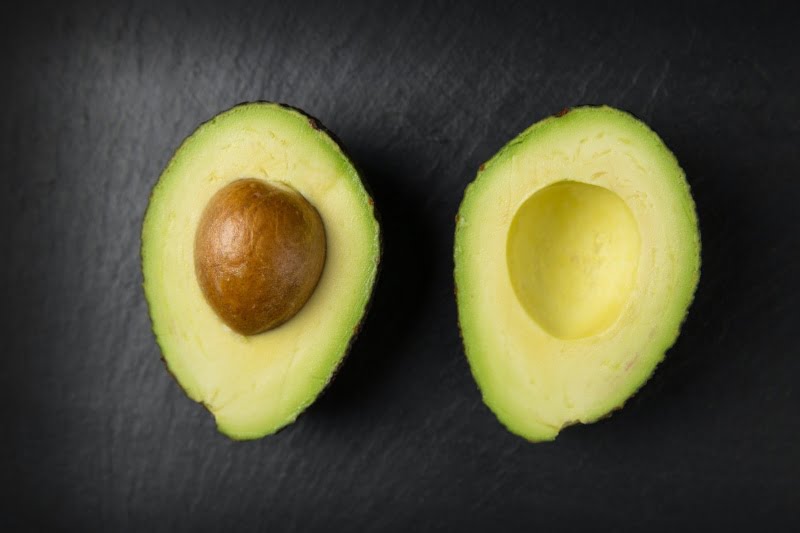

Taking 6 mg of boron for only ONE week can increase your blood testosterone levels by up to 28%.(13)
It lowers estradiol (a form of estrogen made mainly by the ovaries) levels by almost half, too. That's important since having too much estradiol will lower your testosterone.
Due to its effect on testosterone, boron is thought to help deal with erectile dysfunction. Because of that, you can also experience better sexual performance.
Together with vitamin D, K2, calcium, and magnesium, boron improves bone health.
Pros
- Increases free testosterone levels
- May help address erectile dysfunction.
- Improves vitamin D absorption and action
Cons
- None
Zinc - Good for Development of Muscle Mass, Bone Density, and Improving Libido
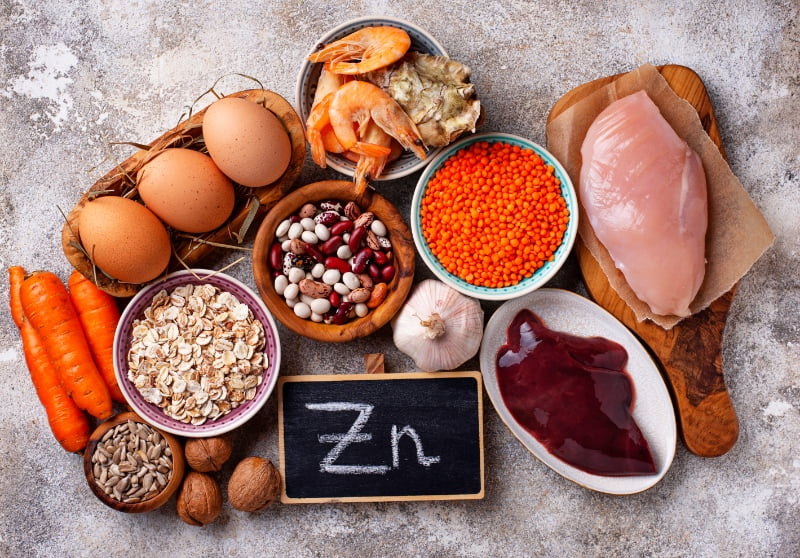

Zinc is another common ingredient in testosterone boosters. It is important for immunity, cell growth and division, and protein synthesis.
Zinc is critical for testosterone production and action, as well as for sperm production.
Some studies have shown that zinc deficiency can result in testosterone deficiency.(14) More recent studies have found that zinc supplements can raise testosterone levels in those who are not getting sufficient zinc in their diet.
Pros
- Helps maintain sperm health
- Can increase testosterone levels
- It improves immunity and speeds up the healing process
Cons
- It may only be effective in people who are zinc deficient.
Magnesium - Good for Regulating Testosterone Levels Fast
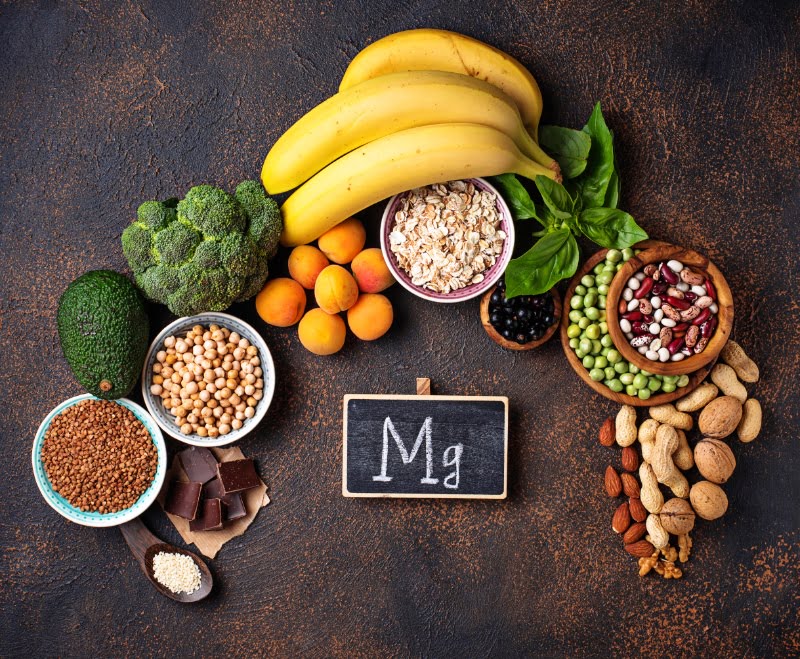

You might be surprised at how many men are deficient in magnesium.
This mineral is involved in many processes in the body, and maintaining a high magnesium intake can also help increase testosterone and sperm levels. One study compared the effects of magnesium supplementation in sedentary and athletes.(15) Magnesium increased testosterone levels in both groups, but the increases were higher in those who exercised.
It has also been shown that muscle growth and performance can be improved with magnesium supplementation.(16)
Pros
- An essential mineral required for hundreds of reactions in the body
- Can boost muscle strength and performance
- Increases testosterone levels, especially in those who exercise.
Cons
- It may cause gastrointestinal side effects in high doses.
How We Chose the Top Vitamins and Minerals for Testosterone
We carefully researched and analyzed various vitamins and minerals to select the best ones for boosting testosterone levels. We considered several factors, such as the effectiveness of the nutrients, scientific evidence, dosage, safety, customer reviews, product transparency, manufacturer reputation, price, and overall value.
Effectiveness of Nutrients
To ensure that the vitamins and minerals we recommend are effective for increasing testosterone, we evaluated the scientific evidence behind each nutrient. We assessed each nutrient's ability to support healthy testosterone levels.
Scientific Evidence
We extensively reviewed published studies, clinical trials, and scientific literature to determine the effectiveness of each vitamin and mineral in supporting testosterone levels. We only recommend supplements with strong scientific evidence supporting their effectiveness.
Dosage
We looked at how much of each nutrient was used to make sure it's safe and effective. We only recommend supplements that contain vitamins and minerals in amounts that are effective.
Safety
To minimize the risk of side effects, we thoroughly reviewed the safety of the vitamins and minerals in each supplement. We only recommend supplements with nutrients that are safe when taken as directed.
Customer Reviews
We considered the feedback and reviews from customers to evaluate the vitamins and minerals for testosterone. We looked for supplements with positive reviews and high satisfaction rates among customers.
Product Transparency
We only recommend supplements that have a transparent and easily accessible formula. We looked for vitamins and minerals that disclose the nutrients and dosages on the label or website.
Manufacturer Reputation
We evaluated the reputation of each supplement's manufacturer to ensure they have a history of producing high-quality supplements. We only recommend vitamins and minerals for testosterone from reputable manufacturers with a proven track record.
Price
We assessed the price of each vitamin and mineral supplement to ensure it provides value for money. We looked for supplements that are competitively priced without compromising on quality.
Value
We evaluated the overall value of each vitamin and mineral supplement, considering its effectiveness, safety, product transparency, manufacturer reputation, and price. We only recommend supplements that provide the best value for money.
How Do Vitamins and Minerals for Testosterone Work in the Body?
Minerals and vitamins address low testosterone levels by either helping you produce testosterone or decreasing its conversion into other hormones.
Those vitamins and minerals support thousands of biochemical reactions in the body.
This is DIFFERENT from testosterone therapy, like testosterone pills. That's because the therapy replaces the testosterone that you're not producing.
What Are the Health Benefits of Using Vitamin and Mineral Supplements to Boost Testosterone?
These supplements encourage natural testosterone production in the body.
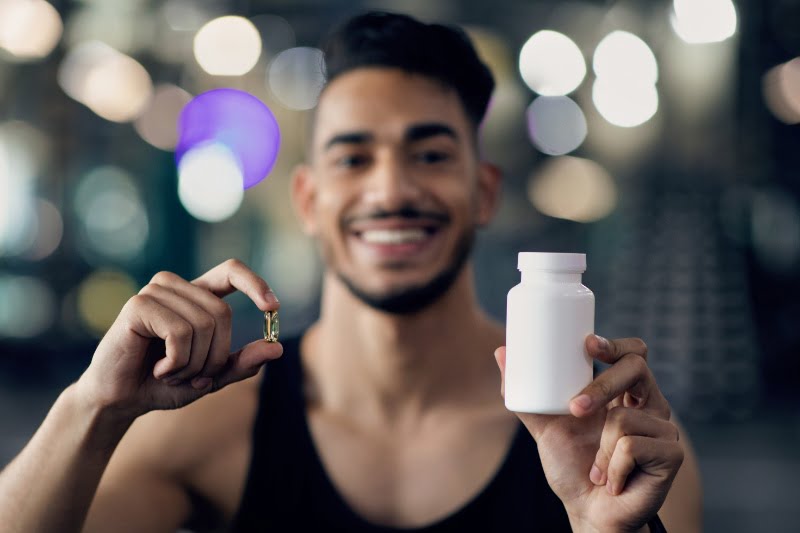

Healthy testosterone levels have a wide range of health benefits, including faster muscle growth, increased strength, improved mood, better athletic performance, and improved sexual health.
However, those dietary supplements don't just increase testosterone levels. The vitamins and minerals mentioned in this article have many positive effects on health and wellbeing.
- Stronger bones
- Faster muscle recovery
- Improved cardiovascular health
- Stronger immunity
- Increased sex drive
- Promote weight loss and help maintain healthy weight
- Improve mental health
- Better sleep quality
What Are the Risks and Side Effects of Taking Vitamins and Minerals for Testosterone?
Natural testosterone boosters containing vitamins and minerals are generally safe. After all, they contain natural ingredients that are good for the body.
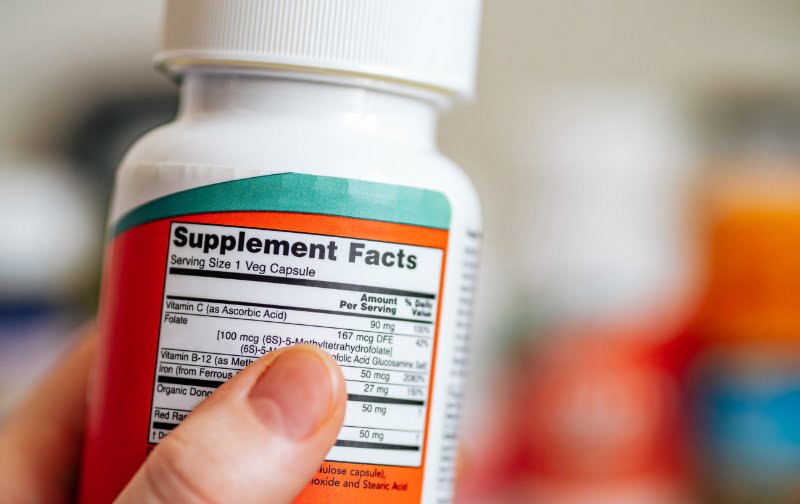

But having too much of a certain nutrient won't supercharge your testosterone levels. Instead, it can be dangerous to your health.
For instance, too much vitamin A can cause bone thinning and liver damage. Meanwhile, too much vitamin D3 will result in nausea, high blood pressure, and other cardiovascular issues.
If you're dealing with low testosterone, you should focus on getting it back to normal levels by fixing your diet, sleep routine, lifestyle, and exercising regularly. Then come the supplements that can support you along the way.
You should also be aware of the ingredient amounts in testosterone boosters.
That's because you might not realize you're consuming too much of a nutrient. After all, foods are also a natural source of them. Make sure you always check the supplement label before taking any supplement.
TestoPrime, one of the best testosterone boosters, already has high concentrations of these ingredients, including some other herbal ingredients like ashwagandha extract, fenugreek extract, Panax ginseng, and D-aspartic acid.
How to Use Vitamins and Minerals for Low Testosterone?
Great testosterone boosters already have a good amount of nutrients in them.
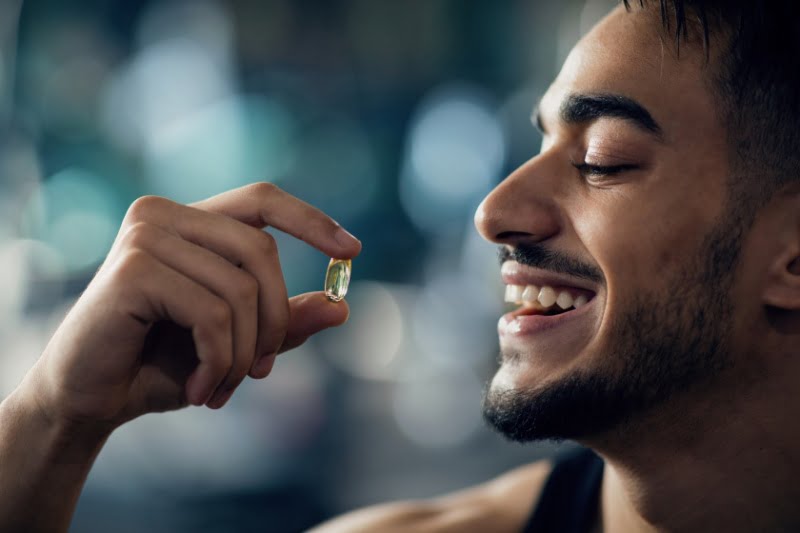

You may choose to take a vitamin or mineral supplement on top of the testosterone supplement you are already taking.
BUT, keep in mind that too much of a nutrient can be harmful, so always read the ingredient list and consult a doctor before taking any supplement.
However, don't forget that food is the primary source of all essential vitamins and minerals. Supplements are only meant to supplement insufficient dietary intake, not fully replace it.
For instance, you can get vitamin D3 from sun exposure. Meanwhile, calcium is present in dairy products, while magnesium can be found in dark leafy greens.
Because of that, you might not need a separate supplement in addition to your testosterone booster.
How to Choose the Right Vitamins and Minerals for Testosterone?
All testosterone booster supplements aim to boost testosterone naturally.
But the nutrients to look for also depend on what you want to achieve.
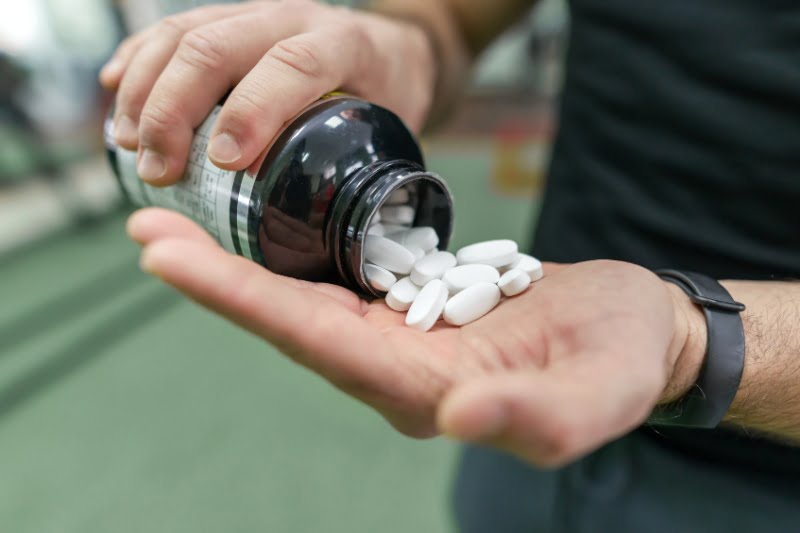

Let's say your priorities are improving sexual performance and increasing lean muscle mass. You should look for testosterone boosters containing zinc.
Vitamin K2 improves muscle health, too, but it also greatly enhances bone strength.
However, supplements are not miracles, and you need to take care of your diet and lifestyle habits. For example, poor sleep can lower your testosterone. Therefore, restoring sleep is the primary strategy before you decide which supplement brand to choose.
Healthy blood sugar levels are also important, so following a healthy, balanced diet is a must. On the other hand, B vitamins, vitamin D, and magnesium will also support blood sugar regulation.
Frequently Asked Questions (FAQ):
You now know what the best testosterone-boosting vitamins and minerals are. Next, we'll answer a few in-depth questions that you might have about vitamins and minerals in testosterone boosters:
How Much Zinc Should I Take Daily to Increase Testosterone?
Around 14 mg of zinc is the recommended daily intake. If you're more active than usual and your dietary zinc intake is low, going slightly higher will help you avoid deficiency. If you happen to go over 14 mg, make sure you DON'T exceed 40 mg. Going over 40 mg for more than 4 months may negatively impact other minerals, like copper, calcium, and magnesium.
Which Is Better, Zinc Citrate or Zinc Gluconate?
Zinc gluconate is the best-absorbed form of zinc, but the body absorbs other forms of zinc, like citrate or picolinate, well enough too. Some studies claim that zinc citrate, in particular, is absorbed as well as zinc gluconate. The only difference is that citrate has a less bitter and more appealing taste than gluconate. However, you wouldn't notice much difference if taking them in capsule form.
Can You Take Testosterone Booster Pills With Vitamins?
Yes, but there are a few things to consider. One of the best testosterone boosters, TestoPrime, contains a lot of natural ingredients. In such a case, you might not need to take an additional supplement. If you still consider taking separate supplements, you need to make sure that you don't exceed the tolerable upper intake for specific vitamins and minerals. Always check with your doctor before taking any supplements.
What Vitamins Should I Take With Testosterone?
Vitamin D and zinc are the best supplements to pair with testosterone boosters. However, these two nutrients are usually present in most testosterone boosters. If you still don't see them in the product you chose, consider taking vitamin D and zinc at doses recommended by your healthcare practitioner.
Conclusion
Making sure your testosterone booster has only effective ingredients is critical for getting an increase in testosterone levels.


Check to see if your test booster contains vitamin D, zinc, or magnesium. If it doesn't, you may want to consider additional supplementation.
- Vitamin D - This sunshine vitamin is a steroid hormone that improves bone and muscle strength, and can also increase testosterone levels in those who have a vitamin D deficiency.
- Zinc - Zinc helps maintain sperm quality and increase testosterone in zinc-deficient individuals.
- Magnesium - an essential mineral for hundreds of reactions in the body. It supports energy production, testosterone synthesis, muscle contractions, and cardiovascular health.
These three nutrients have the strongest evidence for naturally increasing testosterone. Taking them as dietary supplements is recommended if you don't get them enough with your diet.
The other nutrients have some studies backing them up, but more research is recommended to prove their effectiveness in boosting testosterone.
However, they all have health benefits outside of improving testosterone, so there's no harm in adding them to your diet.
- Yang, Yan et al. “Vitamin A Promotes Leydig Cell Differentiation via Alcohol Dehydrogenase 1.” Frontiers in endocrinology vol. 9 644. 29 Oct. 2018, doi:10.3389/fendo.2018.00644↩
- Pilz, S et al. “Effect of vitamin D supplementation on testosterone levels in men.” Hormone and metabolic research = Hormon- und Stoffwechselforschung = Hormones et metabolisme vol. 43,3 (2011): 223-5. doi:10.1055/s-0030-1269854↩
- Talib, Raidh A et al. “The role of vitamin D supplementation on erectile function.” Turkish journal of urology vol. 43,2 (2017): 105-111. doi:10.5152/tud.2017.76032↩
- Nakayama, O et al. “Riboflavin, a testosterone 5 alpha-reductase inhibitor.” The Journal of antibiotics vol. 43,12 (1990): 1615-6. doi:10.7164/antibiotics.43.1615↩
- Ng, Chi-Fai et al. “Effect of niacin on erectile function in men suffering erectile dysfunction and dyslipidemia.” The journal of sexual medicine vol. 8,10 (2011): 2883-93. doi:10.1111/j.1743-6109.2011.02414.x↩
- Shomali, Tahoora et al. “Effect of pharmacological doses of niacin on testicular structure and function in normal and diabetic rats.” Andrologia vol. 50,10 (2018): e13142. doi:10.1111/and.13142↩
- YAMAMOTO, Tatsuya et al. “Effects of pantothenic acid on testicular function in male rats.” The Journal of veterinary medical science vol. 71,11 (2009): 1427-32. doi:10.1292/jvms.001427↩
- Symes, E K et al. “Increased target tissue uptake of, and sensitivity to, testosterone in the vitamin B6 deficient rat.” Journal of steroid biochemistry vol. 20,5 (1984): 1089-93. doi:10.1016/0022-4731(84)90348-0↩
- Elshahid, A R M et al. “Folic acid supplementation improves erectile function in patients with idiopathic vasculogenic erectile dysfunction by lowering peripheral and penile homocysteine plasma levels: a case-control study.” Andrology vol. 8,1 (2020): 148-153. doi:10.1111/andr.12672↩
- Maresz, Katarzyna. “Proper Calcium Use: Vitamin K2 as a Promoter of Bone and Cardiovascular Health.” Integrative medicine (Encinitas, Calif.) vol. 14,1 (2015): 34-9.↩
- Ito, Asagi et al. “Menaquinone-4 enhances testosterone production in rats and testis-derived tumor cells.” Lipids in health and disease vol. 10 158. 13 Sep. 2011, doi:10.1186/1476-511X-10-158↩
- Cinar, Vedat et al. “Testosterone levels in athletes at rest and exhaustion: effects of calcium supplementation.” Biological trace element research vol. 129,1-3 (2009): 65-9. doi:10.1007/s12011-008-8294-5↩
- Pizzorno, Lara. “Nothing Boring About Boron.” Integrative medicine (Encinitas, Calif.) vol. 14,4 (2015): 35-48.↩
- Prasad, A S et al. “Zinc status and serum testosterone levels of healthy adults.” Nutrition (Burbank, Los Angeles County, Calif.) vol. 12,5 (1996): 344-8. doi:10.1016/s0899-9007(96)80058-x↩
- Cinar, Vedat et al. “Effects of magnesium supplementation on testosterone levels of athletes and sedentary subjects at rest and after exhaustion.” Biological trace element research vol. 140,1 (2011): 18-23. doi:10.1007/s12011-010-8676-3↩
- Maggio, Marcello et al. “The Interplay between Magnesium and Testosterone in Modulating Physical Function in Men.” International journal of endocrinology vol. 2014 (2014): 525249. doi:10.1155/2014/525249↩
